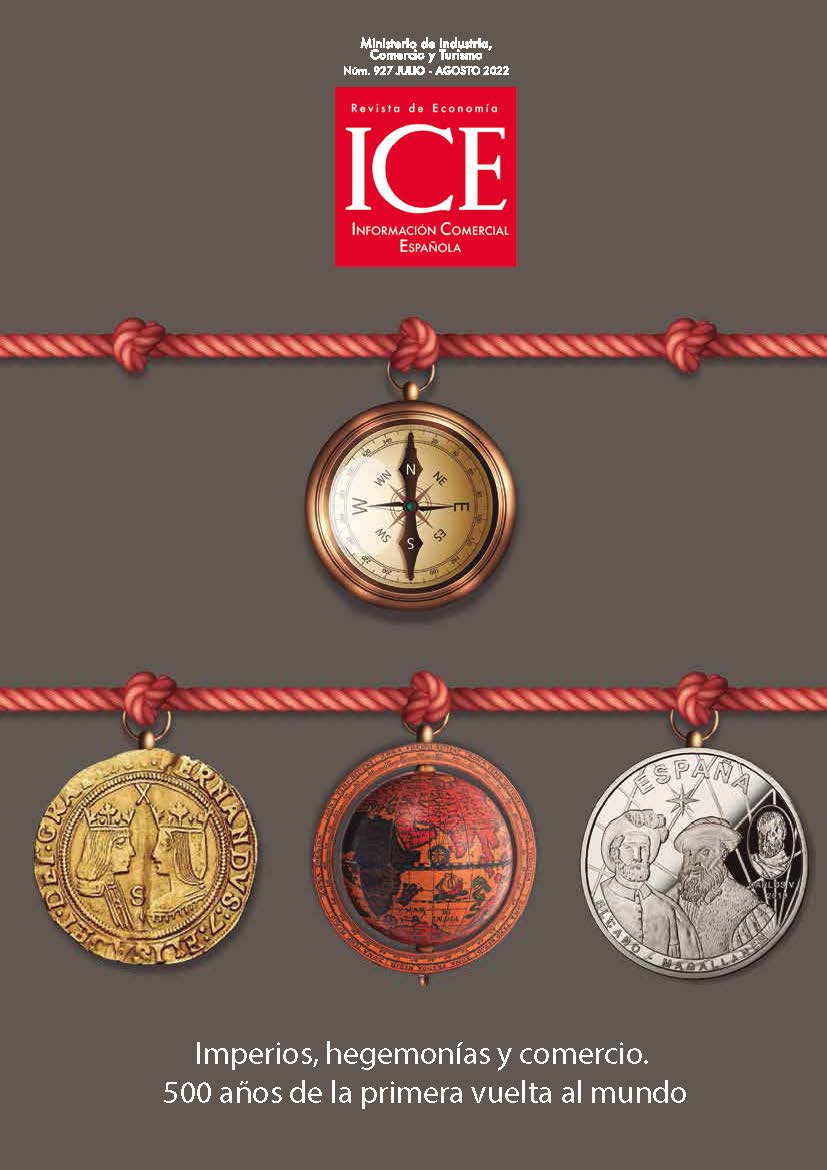Financiación del desarrollo en el marco del blending
##plugins.themes.bootstrap3.article.sidebar##
Descargas
##plugins.themes.bootstrap3.article.main##
El artículo analiza la brecha de bancabilidad de aquellos proyectos de inversión con participación del sector privado que tienen un impacto relevante en las denominadas Agendas de Sostenibilidad y Financiación del Desarrollo. Se reflexiona sobre los fallos de mercado que impiden el flujo de inversión privada hacia proyectos «con impacto» utilizando como parámetros: i) el nivel de desarrollo y solidez institucional y regulatoria de los países receptores; y ii) las tecnologías y modelos de negocio necesarios para el funcionamiento operativa y financieramente eficiente de las iniciativas de inversión. Se argumenta que una parte importante de la brecha de bancabilidad de los proyectos privados puede ser cubierta con inversión pública subsidiaria de la inversión privada mediante el uso de la financiación combinada o blended finance.
##plugins.themes.bootstrap3.article.details##
Banco Mundial. (2015). From billions to trillions: MDB contributions to financing for development. Grupo Banco Mundial. https://documentos.bancomundial.org/es/publication/documents-reports/documentdetail/602761467999349576/from-billions-to-trillions-mdb-contributions-to-financing-for-development
Baumol, W. J. (1972). On Taxation and the Control of Externalities. American Economic Review, 62(3), 307-322.
BEI, Banco Europeo de Inversiones. (2016). A ground-breaking fund attracts private investments form climate and development projects. https://www.eib.org/en/stories/climate-and-development-equity
Collier, P. (2018). The future of capitalism: Facing the new anxieties. Harper.
Consejo Europeo. (2019). The future of the European financial architecture for development. October. https://www.consilium.europa.eu/media/40967/efad-report_final.pdf
Consejo Europeo. (2021, June 14). Council adopts conclusions on enhancing the European financial architecture for development [Comunicado de prensa]. https://www.consilium.europa.eu/en/press/press-releases/2021/06/14/council-adopts-conclusions-on-enhancing-the-european-financial-architecture-for-development/
Convergence. (2021). The State of Blended Finance 2021.
Doumbia, D., & Lauridsen, M. L. (2019). Closing the SDG Financing Gap: Trends and Data. EMCompass Note 73. International Finance Corporation.
ETTG, European Think Tanks Group. (2021). Financing the 2030 Agenda. An SDG alignment framework for Public Development Banks. October. https://ettg.eu/publications/financing-the-2030-agenda-an-sdg-alignment-framework-for-public-development-banks/
Kharas, H., & Rivard, C. (2022, May 11). Financing for sustainable development is clogged. Blog Future Development, World Bank and Brookings Institution. https://www.brookings.edu/blog/future-development/2022/05/11/financing-for-sustainable-development-is-clogged/
Kleiterp, N. (2017). Banking for a better world. Amsterdam University Press.
Koplow, D., & Steenblik, R. (2022). Financing our survival: Building a Nature Positive Economy through Subsidy Reform. www.businessfornature.org
Mabunda, J. (2022). Addressing Africa´s dual challenges: Climate change and electricity access. Blog Africa in Focus, Brookings Institution. https://www.brookings.edu/blog/africa-in-focus/2022/01/25/addressing-africas-dual-challenges-climate-change-and-electricity-access/
OCDE, Organización para la Cooperación y el Desarrollo Económicos. (2018). Private Philanthropy for development. https://www.oecd.org/dac/private-philanthropy-for-development-9789264085190-en.htm
OCDE, Organización para la Cooperación y el Desarrollo Económicos. (2020). COVID-19 crisis threatens Sustainable Development Goals financing.
OCDE, Organización para la Cooperación y el Desarrollo Económicos. (2021a). The OECD DAC Blended Finance Guidance. https://www.oecd-ilibrary.org/development/the-oecd-dac-blended-finance-guidance_ded656b4-en
OCDE, Organización para la Cooperación y el Desarrollo Económicos. (2021b). Global Outlook on Financing for Sustainable Development 2021: A New Way to Invest for People and Planet. https://www.oecd.org/dac/global-outlook-on-financing-for-sustainable-development-2021-e3c30a9a-en.htm
One Planet Lab. (2021). Blended finance for scaling up climate and nature investments. November. https://www.lse.ac.uk/granthaminstitute/publication/blended-finance-for-scaling-up-climate-and-nature-investments/
ONU, Organización de las Naciones Unidas. (2015). Addis Ababa Action Agenda of the Third International Conference on Financing for Development.
Robinson, M. (2022, February 15). Climate accountability now. Social Europe. http://www.socialeurope.eu/climate-accountability-now
UNCTAD, United Nations Conference on Trade and Development. (2014). Investing in the SDGs: An Action Plan for promoting private sector contributions. In World Investment Report 2014 (pp. 140-146).
UNICEF, United Nations Children’s Fund. (2022, January). Financing gap estimates. In Costs and predicted financing to deliver COVID-19 vaccines in 133 low-and middle-income countries (pp. 24-39). https://www.unicef.org/documents/costs-and-predicted-financing-gap-deliver-covid-19-vaccines-133-low-and-middle-income
WEF, World Economic Forum. (2020). Charting the course for SDG financing in the decade of devilery. January. https://www.weforum.org/agenda/2020/01/unlocking-sdg-financing-decade-delivery/


